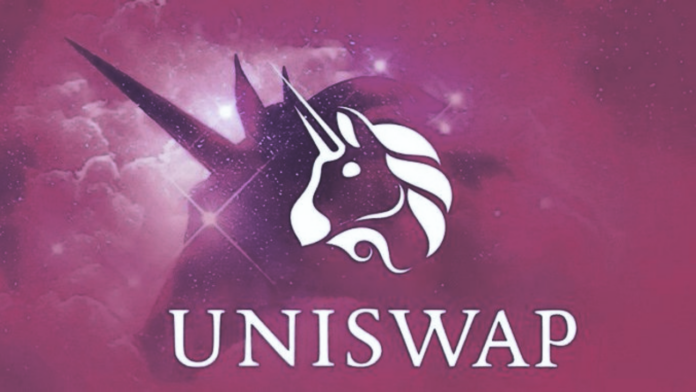Uniswap Labs, the developer behind the widely used decentralized exchange Uniswap, is intensifying its efforts to challenge the US Securities and Exchange Commission’s (SEC) proposal to extend its regulatory authority over decentralized finance (DeFi). This push from Uniswap comes on the heels of a significant Supreme Court decision that could reshape how federal agencies interpret ambiguous laws.
The SEC has been proposing changes since at least April 2023, aiming to expand the definition of what qualifies as an exchange under the Exchange Act of 1934. This proposed expansion specifically targets crypto market participants within the DeFi space. Uniswap has been a vocal opponent of this proposal, arguing that it overreaches and lacks clear guidelines.
In a letter dated July 9, Uniswap reiterated its stance against the SEC’s proposed amendments, building on arguments made in a previous letter sent last month. Uniswap’s latest argument hinges on the recent Chevron decision, made during the Loper Bright Enterprises v. Raimondo Supreme Court case on June 28. This landmark ruling states that courts are no longer required to defer to federal agencies when interpreting ambiguous laws. This development is pivotal for Uniswap’s case, as it undermines the SEC’s authority to unilaterally redefine what constitutes an exchange.
Uniswap argues that pursuing the amendment would be a waste of the SEC’s limited resources. The company contends that the proposed changes were already likely to face, and struggle to survive, a judicial challenge even before the Chevron decision. The new ruling only strengthens the position that the SEC’s interpretation of the Exchange Act stretches the statutory text too far. If the SEC moves forward with its proposed amendments, Uniswap believes a reviewing court will almost certainly find that the SEC’s interpretation exceeds the boundaries set by the original legislation.
Another point raised by Uniswap is the broad and undefined nature of the proposed amendment. The lack of clear limits means the SEC would likely have to engage in continuous litigation on a case-by-case basis. This approach would lead to inconsistencies and leave the public without clear guidance on what constitutes an exchange. Uniswap warns that this lack of clarity could create a regulatory environment filled with uncertainty, making it difficult for market participants to operate confidently.
The battle between Uniswap and the SEC highlights a broader struggle within the cryptocurrency industry. DeFi platforms, which allow users to trade, lend, and borrow assets without traditional intermediaries, operate in a regulatory grey area. These platforms rely on smart contracts and decentralized protocols to function, making it challenging for regulators to apply existing laws designed for traditional financial systems.
The SEC’s attempt to broaden its regulatory reach reflects concerns about investor protection and market integrity in the rapidly evolving crypto space. However, critics argue that imposing traditional regulatory frameworks on innovative technologies could stifle innovation and drive projects offshore. Uniswap’s resistance is rooted in a desire to preserve the unique characteristics of DeFi that distinguish it from centralized financial systems.
Uniswap’s arguments against the SEC’s proposal are also shared by other industry stakeholders. Many believe that a more nuanced approach is needed to regulate DeFi effectively. Rather than applying existing laws to new technologies, some experts advocate for the creation of tailored regulatory frameworks that address the specific risks and challenges posed by decentralized systems.
The outcome of this dispute could have far-reaching implications for the future of DeFi regulation in the United States. If the SEC’s proposal is upheld, it could set a precedent for increased regulatory oversight of decentralized platforms. Conversely, if Uniswap’s arguments prevail, it could limit the SEC’s ability to extend its authority over the DeFi space, potentially paving the way for more innovation and growth within the industry.
Uniswap’s stance also underscores the importance of clear and consistent regulatory guidelines. The crypto industry has long called for greater regulatory clarity to help market participants navigate the complex legal landscape. Ambiguous or overly broad regulations can create uncertainty, which can deter investment and hinder the development of new technologies.
As the debate between Uniswap and the SEC unfolds, it serves as a reminder of the challenges regulators face in keeping pace with technological advancements. The rapid evolution of the crypto industry requires a flexible and adaptive regulatory approach that balances the need for oversight with the need to foster innovation.
The ongoing dialogue between regulators and industry participants will be crucial in shaping the future of DeFi regulation. Collaborative efforts that involve input from a diverse range of stakeholders could help develop balanced regulatory frameworks that protect investors without stifling innovation.
For now, the crypto community watches closely as Uniswap and the SEC continue their battle over the definition of an exchange. The outcome will not only impact Uniswap but could also influence the broader regulatory landscape for DeFi and other emerging technologies. As this legal and regulatory saga progresses, it will likely set important precedents that will shape the future of the crypto industry for years to come.


